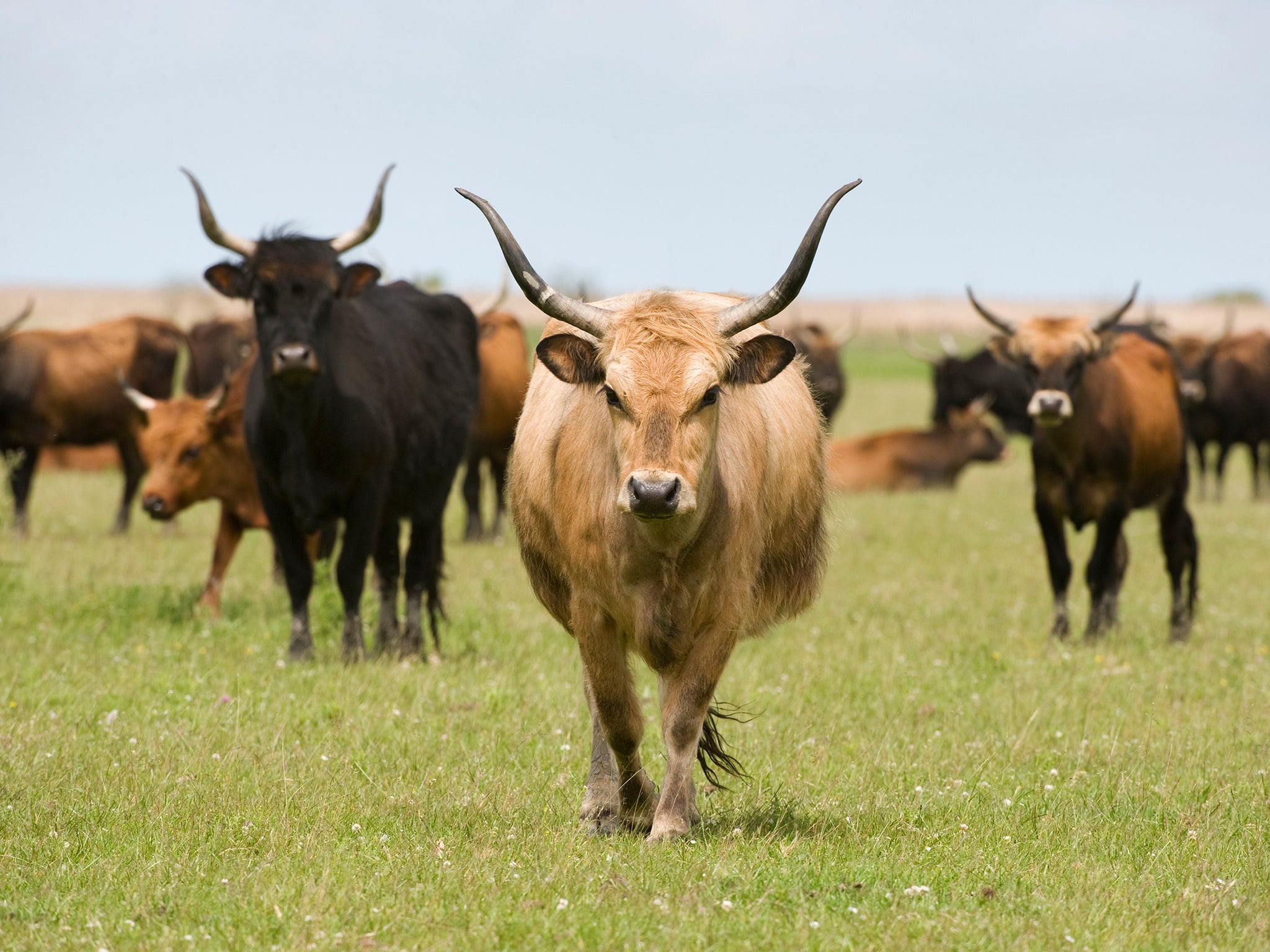Nazi super cows: British farmer forced to destroy half his murderous herd of bio-engineered Heck cows after they try to kill staff
They became so aggressive a UK farmer was forced to turn half of them into sausages

Your support helps us to tell the story
From reproductive rights to climate change to Big Tech, The Independent is on the ground when the story is developing. Whether it's investigating the financials of Elon Musk's pro-Trump PAC or producing our latest documentary, 'The A Word', which shines a light on the American women fighting for reproductive rights, we know how important it is to parse out the facts from the messaging.
At such a critical moment in US history, we need reporters on the ground. Your donation allows us to keep sending journalists to speak to both sides of the story.
The Independent is trusted by Americans across the entire political spectrum. And unlike many other quality news outlets, we choose not to lock Americans out of our reporting and analysis with paywalls. We believe quality journalism should be available to everyone, paid for by those who can afford it.
Your support makes all the difference.Hitler’s drive to produce the perfect Aryan race was not confined to people – it also extended to a specially bred herd of Nazi-engineered cows, which have turned out to be so aggressive that a UK farmer has been forced to turn half of them into sausages.
Derek Gow imported more than a dozen Heck super cows to his West Devon farm in 2009, nearly a century after they were first created in the 1920s.
But, Farmer Gow, who is the only British farmer to own the breed, has been forced to kill seven of his herd because the cows were so aggressive they repeatedly tried to kill his staff.
“We have had to cut our herd down to six because some of them were incredibly aggressive and we just couldn’t handle them,” said Farmer Gow, who said the meat made “very tasty” sausages that tasted a bit like venison.
“The ones we had to get rid of would just attack you any chance they could. They would try to kill anyone. Dealing with that was not fun at all. They are by far and away the most aggressive animals I have ever worked with,” he said.
The aggressive breed was produced by German zoologists and brothers Heinz and Lutz Heck, whom the Nazi party commissioned to produce a breed of cattle based on aurochs, a species of extinct ancient wild bull.
The resulting cows, bred from wild genes extracted from domestic descendants of the aurochs, had such muscular physiques and deadly horns that they were used in propaganda material during World War II as a further illustration of the Third Reich’s strength and purity.
“There was a thinking around at the time that you could selectively breed animals for Aryan characteristics, which were rooted in runes, folklore and legend. What the Germans did with their breeding programme was create something truly primeval,” said Mr Gow.
“The reason the Nazis were so supportive of the project is they wanted them to be fierce and aggressive. When the Germans were selecting them to create this animal they used Spanish fighting cattle to give them the shape and ferocity they wanted.” Fresians and Simmentals were also part of the breeding process.
The aurochs were a species of wild bull that had once roamed the forests of Europe but were hunted to extinction in the 17th century. The brothers' imitation was slightly shorter than the original, but retained the muscular body, deep brown complexion and shaggy, coffee-coloured fringe.
The cattle were mostly destroyed after the fall of Nazism in 1945, although some have survived in European nature conservation parks.
Although many of Farmer Gow’s herd were aggressive, others were calm and quiet, he said, adding that he has no regrets.
“Since they have gone it is all peaceful again. Peace reigns supreme on the farm. Despite these problems, I have no regrets at all. It has been a good thing to do and the history of them is fascinating,” he said.
Join our commenting forum
Join thought-provoking conversations, follow other Independent readers and see their replies
Comments